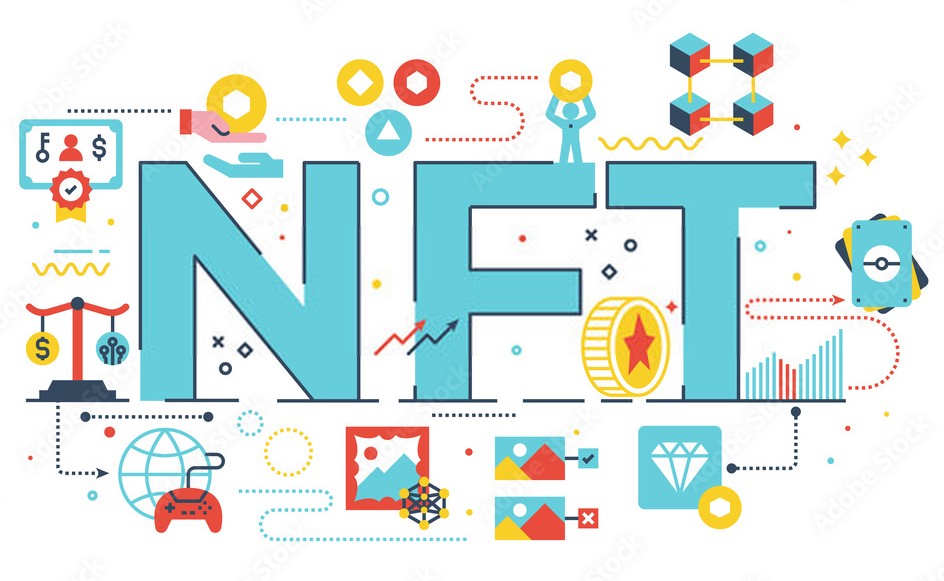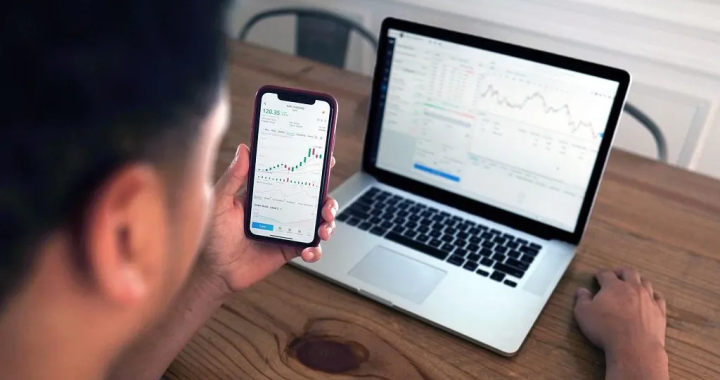A GUIDE ON HOW TO DEVELOP AN NFT MARKETPLACE PLATFORM
5 min read
Due to the launch of bitcoin in 2009, cryptocurrencies have become the most talked about topic in the industry. Another hot topic recently has been non-fungible tokens (NFTs), which have already traded $10 billion in Q3 2021. The platform focuses on selling digital versions of artists’ original artwork, such as paintings, GIFs, videos, games, game tickets, domain names, and more. The rapidly growing industry is becoming one of the most important ways to monetize digital content.
All the transactions conducted on NFT marketplaces are secure by blockchain technology. It also helps build cryptocurrency exchange software like ethereum, Litecoin, Polkadot, Cardano, and TRON. All these things build cost as well as generate revenue. Wondering how? Keep scrolling and exploring the NFT marketplace business model.
What is the NFT marketplace?
NFT marketplaces like OpenSea, Rarible, and Axie Marketplace, like Spotify and Netflix, deal with digital content to connect users. However, their working model is quite different from these platforms. Users purchase a single additional artwork on the NFT Marketplace to obtain rights or trade.
During its early stages, the platform is available only to a small number of articles, such as artwork, music, videos, and GIFs. However, the platform is now gaining traction in almost every industry, including gaming, dominoes, real estate, fashion, licensing, and eBooks, the list of which is increasing day by day.
Some Interesting Facts About NFT Marketplaces
- The NBA’s Top Shot product brought over $230 in revenue (blockchain-based trading card system).
- Cryptopunks NFT set a new daily Ethereum sales record of $69 million, while OpenC crossed $3.5 billion.
- The top NFT markets are OpenSea, Axie Infinity, Rarible, Nifty Gateway, Decentraland, SuperRare, NBA Top Shot, Alien Worlds, and BakerySwap.
- Yuga Labs’ Bored Ape Yacht Club (BAYC) has become a popular collection of 10,000 unique bored apes, with total sales exceeding $1 billion.
An NFT Marketplace Business Model’s Various Revenue Streams
The majority of people are aware of one or two NFT revenue streams. We’ll go over a variety of other ways to monetize your NFT platform in this section.
- Fees for listing: The NFT marketplace features tens of thousands of crypto-collectibles created by artists. As a result, a marketplace can classify these articles based on demand, price, and newness. Businesses also charge base on how long a digital asset is displayed and what type of digital asset it is.
- Transaction Processing Fees: Investors on NFT exchanges purchase assets after depositing funds into a crypto wallet. Marketplaces charge transaction fees in the form of gas fees for this. The fees collect to ensure the proper operation of blockchain networking and the security of transactions.
- Initial Setup Fees: Some platforms charge a fee to list crypto-collectibles for the first time on their platform. The fee get support by the NFT platform’s technologies and protocols. This fee covers the costs associated with the commercial sale of a digital asset.
- Some creators list: their products for a specific category or individual investors in a private sale. People can look at the crypto collectible but not buy it if they
Choose this option. NFT platforms charge private sale fees to investors or creators for such options.
Fees for Minting: Minting is also not free. For registering artwork on the blockchain network, creators must pay a fee. Instead of listing each crypto-collectible individually, a creator can pay a lower fee by minting a group of them.
Bidding fees: To begin bidding on the platform, you must pay a bidding fee. To participate in crypto-collectibles auctions, the buyer must pay a fee. In most cases, the fee pay before the auction ends and after the lowest and highest auction prices consider.
Selling multiple NFTs simultaneously:
Many creators prefer to use auctions to list and sell multiple assets. It is not cost-free to sell multiple products at the same time. Gas fees for NFT marketplaces involve. As a result, they charge a fee for multiple product selling categories. It generates a lot of money for sellers, especially when they auction off a whole range of products at once.
Launching various Affiliate marketing programs
is another way for NFT marketplaces to generate additional revenue. They can charge for things like sharing real-time data, conducting airdrops, and running bounty programs, among other things.
The Major Expenses Incurred By An NFT Marketplace
As you have seen the credit side of your financial accounts, now it’s time to check the debit balance too. Here we have a list of expenses borne by NFT marketplaces.
Maintenance of the blockchain network:
Blockchain networks such as Ethereum, Binance Smart Chain, Tezos, and TRON must be managed and maintained by NFT marketplaces. As a result, businesses must pay a certain amount as a gas fee for energy consumption.
Auditing the smart contract
Blockchain technology is built on smart contracts. It facilitates the smooth operation of transactions, terms, and conditions. The NFT marketplace conducts regular audits of smart contracts to ensure that they remain operational and free of bugs and vulnerabilities.
Protecting the unique crypto collectibles
Each NFT market is distinct from the others. They must adhere to intellectual property copyrights and trademark issuing authorities. Legal fees are involved, and eliminating them could be a difficult decision.
Final Words!!
NFT is a rapidly growing field. It exemplifies the value of highly trained artists and investors. You only need to evaluate the currently available marketplaces to enter the most lucrative market opportunity. Find out what they have to offer. Even if you intend to create a marketplace similar to OpenSea, you can go with a white label openSea marketplace solution with an NFT token development company. Many app development companies offer reliable information related to the NFT marketplace. If you are confused about where to start, the companies can provide you with a quick solution.
Our excellent NFT marketplace development services include top standards, advanced security features, next-gen technology stack, on-time delivery, and round clock tech support. Utilizing these outstanding services will definitely help to develop a stunning NFT marketplace. Be early to launch an NFT marketplace, stay ahead of competitors, and extract significant income!






